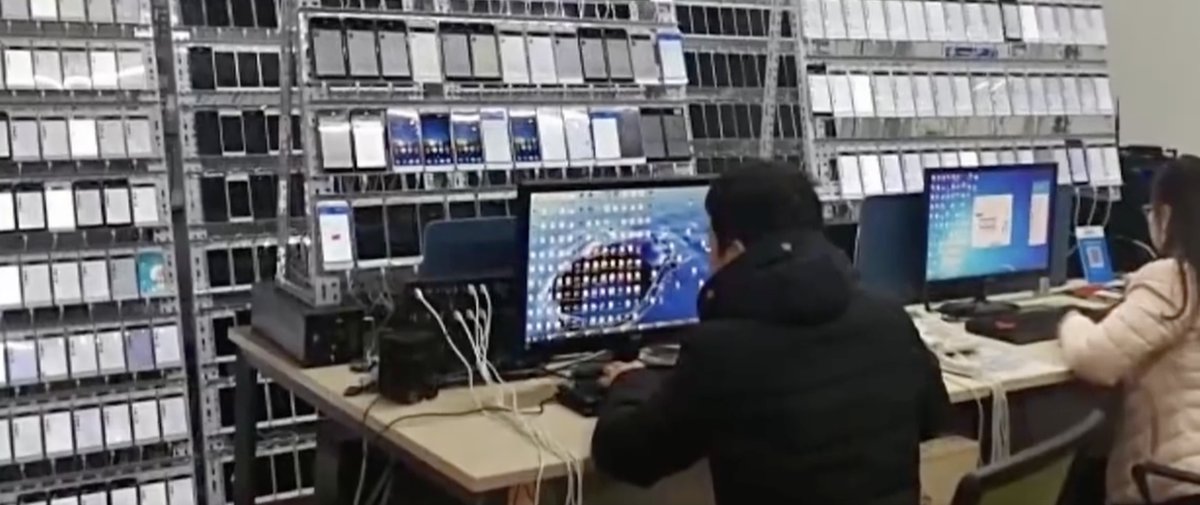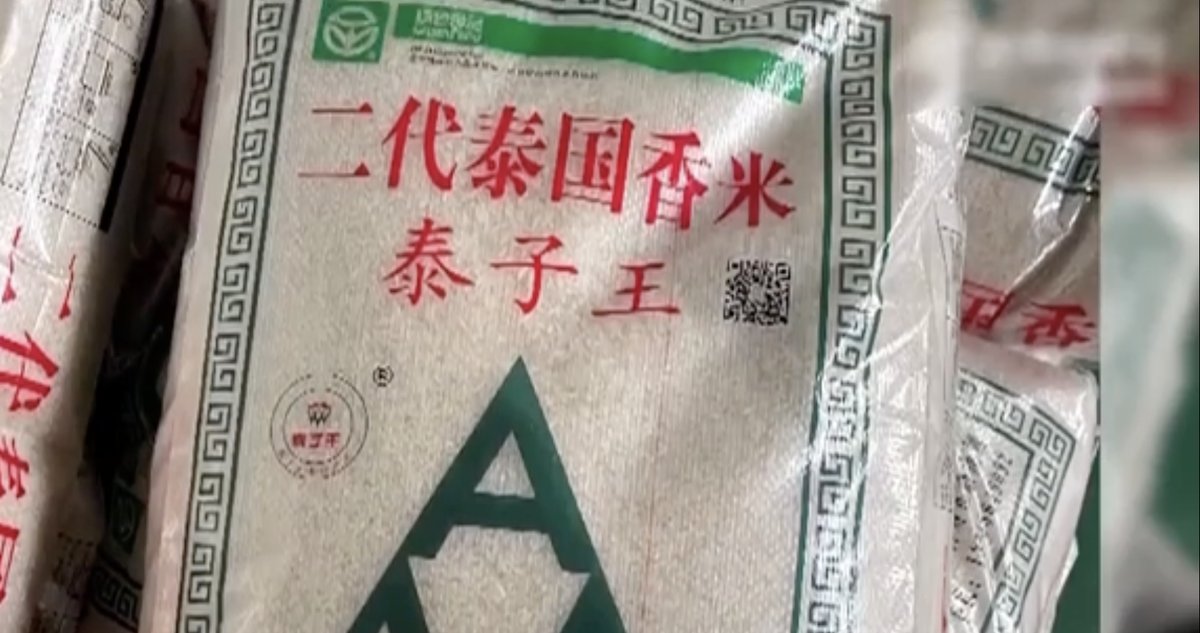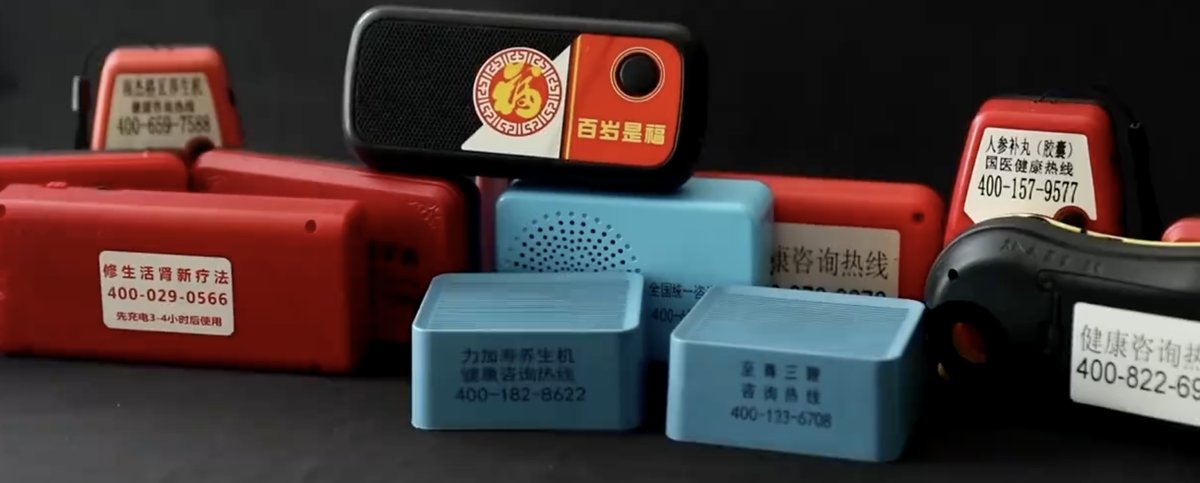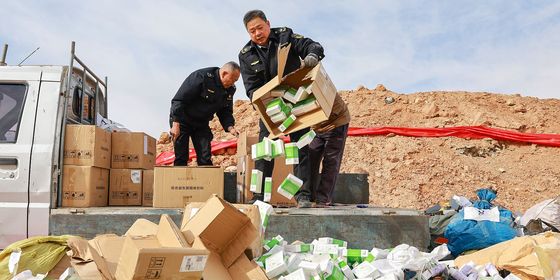From chemical rice to monstrous “water armies,” here are the most shocking consumer rights scandals revealed during China’s annual “3.15 Gala”
In this booming age of e-commerce, a common lament from online shoppers remains “the longest road I have traveled is the garden path merchants led me down (走过最长的路是商家的套路).” They know well fakes and bad deals lurk round every corner online. Yet however familiar one may be with underhanded sellers, it’s still a shock to see your own grandparents lured into spending their savings on snake oil.
Such scenes are presented annually on state broadcaster CCTV’s “3.15 Gala,” a TV program focusing on protecting consumer rights by exposing malpractices of unscrupulous companies. Since 1991, the gala has been held every year on March 15, World Consumer Rights day. Each year, the TV station sets up investigative teams to gather first-hand information by going undercover at suspected companies, then reveals their findings in one explosive program.
Some argue the one-day carnival doesn’t solve the root causes of consumer rights issues in China, and sheds light on gross misconduct by firms for one night only, before the news cycle quickly moves on. But others are happy to see dodgy businesses, large and small, brought to heel, even if just for one evening. Social media enables many particularly odious scandals to roll on for a long time online, keeping corporate PR teams busy for weeks.
In 2023, a year of recovery for business after three years of strict pandemic restrictions, 3.15 took a more sympathetic approach to enterprises. However, some of the disclosures still astonished the public:
Hired “water army” floods into live broadcasts to boost sales
Captured by CCTV’s camera, many thousands of mobile phones are placed in a room with their screens automatically swiping through live streams. Underneath every phone, there is a charging cable providing a constant flow of power, which makes sure the online “water army (水军)” remains afloat.
As the popularity of livestreaming grows, a monstrous industry providing clicks, likes, and shares for cash has emerged. Known as the “water army,” their troops crowd into livestreams and give fake likes and comments to the business accounts. Previously unknown accounts can quickly jump up the live charts on the platform with the greatest speed and lowest cost. “You can buy 100,000 likes with just 18 yuan, and 30 comments with 59 yuan,” one manager of the water army factory introduced to undercover reporters during the Gala.
When asked how the water army worked, the manager revealed that they have invented a special system, which enables people to control 20,000 mobile phones with a single device. To pretend to be real users rather than hired bots, the army will enter the livestreaming room at different times, and comment in different styles. While the exposed “water army” factory has now been closed down, people are commenting on social media that this is just the tip of the iceberg.
Fragrant rice made from chemicals scares rats away
Another shocking exposé concerned the staple food of choice for many Chinese people—rice. After lurking in a rice factory for days, the reporter found that the so-called imported fragrant rice from Thailand is totally fake: not only does the place of origin have nothing to do with Thailand, but the fragrance of the rice is faked by chemical food additives. To add insult to injury, this chemical flavoring also came from a fake company with no manufacturing credentials.
“There won’t be any rats in the rice warehouse, as the smell of chemicals is too pungent,” the person in charge said frankly. In the extremely uncomfortable video, workers were adding harmful food additives to the rice. Ironically, this rice is sold at a much higher price than ordinary varieties as it is prized for its superior flavor. On social media platform Weibo, people joked under the video that the chemical rice was made from “hex technology,” a combination of chemicals, additives, and dirty work.
Free pirated app turns out to be a mobile phone spy
Apart from harm to consumers’ health, damages to privacy rights also attracted public attention. While pirated software offers free services to people, it can come at a steep price.
Experts from CCTV tested a dozen pirated apps, and found that some of them were embedded with third-party plug-ins. When people use the apps, the third-party packages can steal personal information from the user’s mobile phone, including the identification code of the device. By capturing the user’s key identifying information, advertising companies can easily draw out an accurate portrait of the user and send targeted ads to them. What’s worse, one pirated version of a music app could even eavesdrop on the user’s daily calls.
In recent years, consumers’ personal information security and privacy issues have received increasing attention. Although China has introduced relevant legislation, more work needs to be done to ensure full enforcement of the law.
Free “radios” sent to the elderly sell fake drugs
In northeast China’s Jilin province, a business sent simple radios to a great number of elderly residents. But these radios only have a power button and volume dials, and they can only receive one channel. When the radio is turned on, it plays audio of experts introducing their invention of a kind of miracle drug, and fake former customers vividly narrating how they were cured. The audio continues for over four hours, and keeps repeating until the radio runs out of power.
According to the elderly recipients, some of them received from a few dozen to a few hundred such free radios. Some individuals were sucked in by the promises, spending 2,000 yuan on the drugs in the hope of curing diseases like cerebral thrombosis and hypertension. Nevertheless, after checking the identity of the experts and institutions in the audio, the reporter found that all the information was made up.
Fake filial children take advantage of elderly via livestream
Another advertising scam for miracle medicine also targeted the elderly. Unlike the simplicity of brainwashing ads, this variety uses a carefully crafted and well-developed script. During the livestream, the anchor always plays the role of a righteous person who wants to help the elderly customers cure their illnesses just as any filial child would want to take care of their parents. The anchor often makes up a story about how they got the medicine they sells. For example, one anchor claims he stole it from a greedy manufacturer, while another claims he found a stash of it in an “evil mother-in-law’s” bedroom. Now he wants to sell it on at a huge discount out of the goodness of his heart.
To gain the trust of the elderly, the anchor calls the customers “Mom” or “Dad,” and narrates the great suffering of their own parents and the desire to treat the elderly as their own.
Some exposed that the medicines their parents bought were in fact candies in different packaging, while others called into question the sincerity of livestream sellers. Indeed, it’s not just goods that can be faked, but even the relationship between customer and merchant. People suggest that platforms should take regulatory responsibility, however, one netizen suggested: “I don’t think these video platforms are unaware of this. Instead, they always secretly give more views to eye-catching fake broadcasts.” Another netizen took a more resigned tone: “We’re all actors on the internet,” they wrote.
















